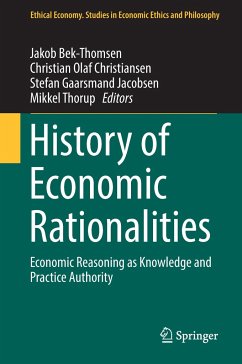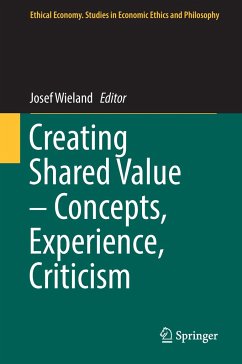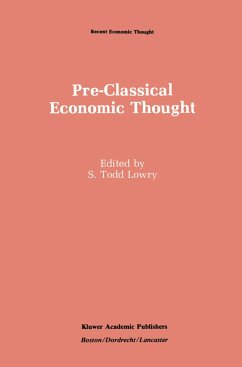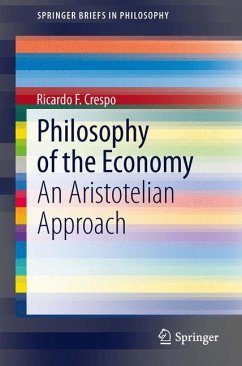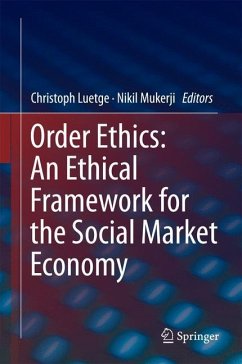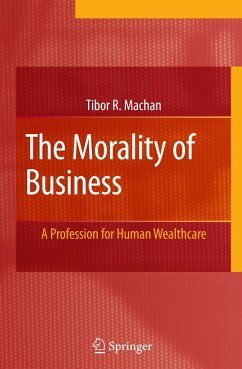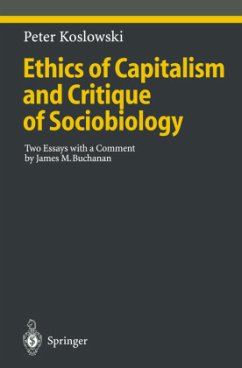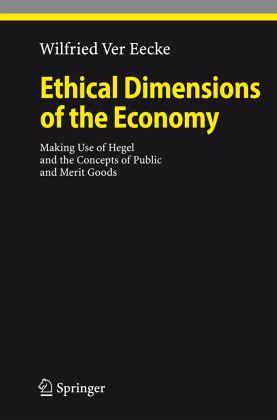
Ethical Dimensions of the Economy
Making Use of Hegel and the Concepts of Public and Merit Goods
Versandkostenfrei!
Versandfertig in 6-10 Tagen
76,99 €
inkl. MwSt.
Weitere Ausgaben:

PAYBACK Punkte
38 °P sammeln!
Overview This book is a philosophical reflection (using mainly Hegel, in addition to 1 Adam Smith, Kant, Marx and Catholic Social Thought) about the soc- political dimension of economics. In it I both agree and disagree with the slogan that "the least government is the best government. " I agree with the slogan, in particular as it applies to the economic domain. Adam Smith taught us that rational and self-interested individuals, left by themselves, create a more efficient and reliable economic system than one in which the government has a heavy role as was the case in his time with the merc- ...
Overview This book is a philosophical reflection (using mainly Hegel, in addition to 1 Adam Smith, Kant, Marx and Catholic Social Thought) about the soc- political dimension of economics. In it I both agree and disagree with the slogan that "the least government is the best government. " I agree with the slogan, in particular as it applies to the economic domain. Adam Smith taught us that rational and self-interested individuals, left by themselves, create a more efficient and reliable economic system than one in which the government has a heavy role as was the case in his time with the merc- tile system (Smith, 14, 651). Ludwig von Mises demonstrated the same idea for the communist command economy (Hayek 1935, 87-130). I d- agree with the above mentioned slogan if it is interpreted as suggesting that we can best forget about the role of the government for a good functioning economy. Instead, I will argue that the government has an important fu- tion in creating the proper regulations and the wise institutional arran- ments which will allow the economy to flourish in a more efficient, fair and humane way. This book is interdisciplinary in nature. It is a philosophical and ethical reflection on economics. Hence, I make use of philosophical ideas, often but not exclusively those of Hegel. I reflect philosophically on economic concepts.





